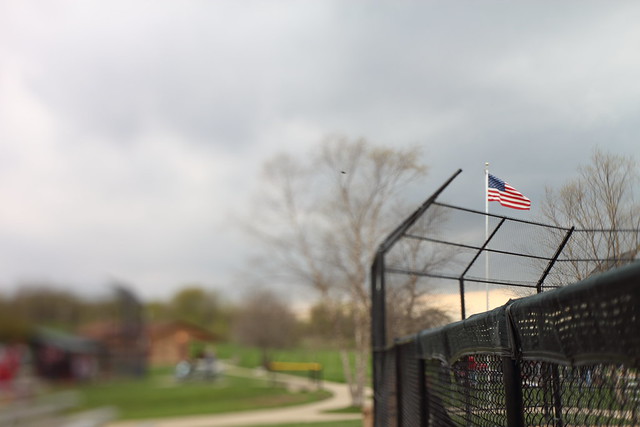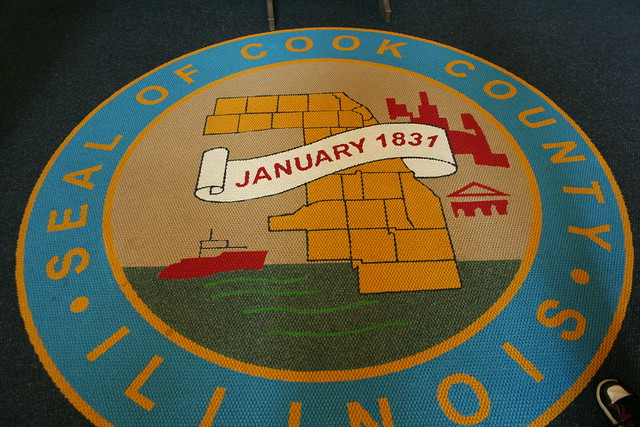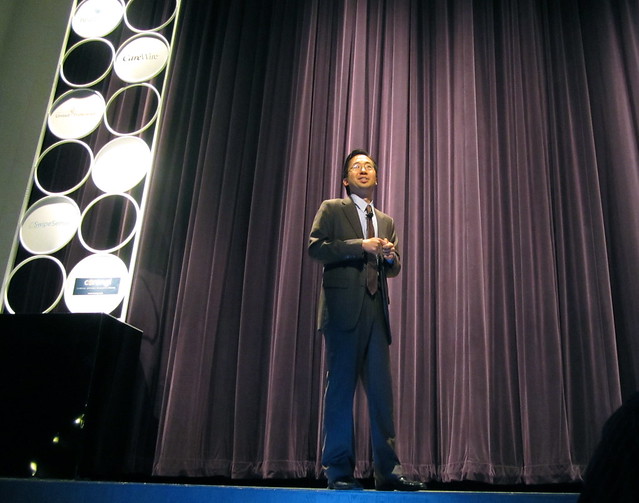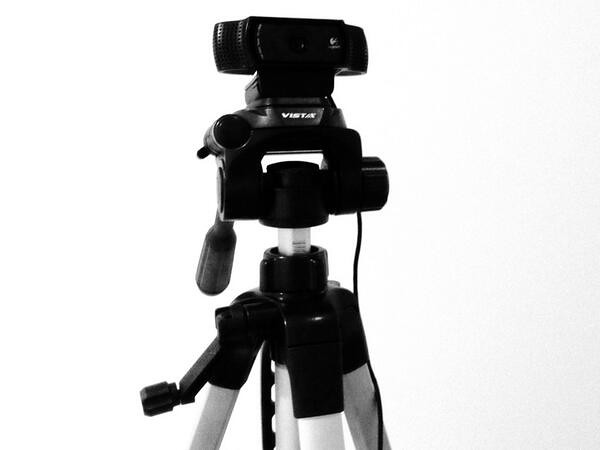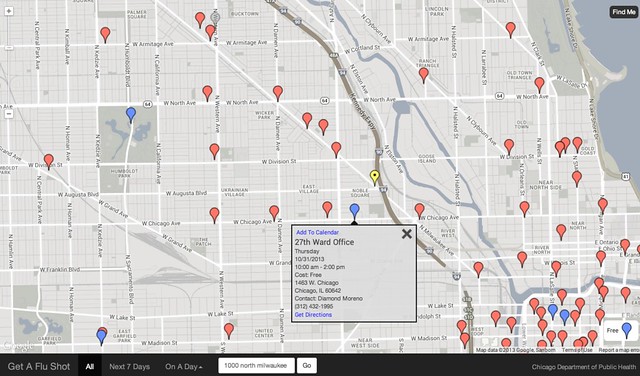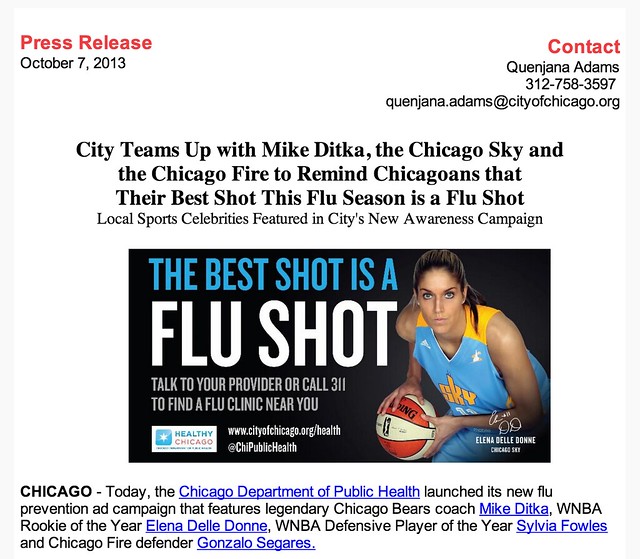Today in London, Waldo Jaquith, a great colleague and fellow Champion of Change, announced the launch of the U.S. Open Data Institute. The goal is “to encourage governments and businesses to adopt open data standards as a way to promote economic growth, innovation and social change”.
Month: October 2013
Remarks to the Cook County Finance Committee in Support of the Cook County Bureau of Technology FY2014 Budget
This morning, along with a couple dozen other people, I spoke during the public comment section of the Cook County Board Finance Committee. The comments are limited to three minutes per person, and I covered my support for the technology portion of the Cook County Finance & Administration budget. I spoke in my capacity as co-chair of President Preckwinkle’s New Media Council, but the cool thing is that anybody can sign up to speak at these sessions. Here’s the full text:
Good morning Mr. Chairman and Commissioners. My name is Daniel X. O’Neil, and I am the Executive Director of the Smart Chicago Collaborative, a civic organization devoted to improved lives in Chicago through technology. Our founding partners are the City of Chicago, the MacArthur Foundation, and The Chicago Community Trust.
We also work very closely with the State of Illinois and the great County of Cook in order to do our work. I’ve interacted with a number of the members of this body in the course of my service at Smart Chicago and in my efforts in the open data movement. I very much appreciate the time I’ve spent with some of you, and I’d like to work with each of you on these matters.
I also serve, along with my friend and colleague Blagica Bottigliero, as co-chair of President Preckwinkle’s New Media Council, where we are charged helping the County develop a digital strategy to better engage, serve, and connect with the public.
In that capacity, I’ve come to greatly value the leadership of Cook County Chief Information Officer Lydia Murray. She is a clear thinker with a practical approach to solving the long-festering technology issues facing County government.
I appreciate the focus on reducing waste to save taxpayers’ money, the spirit of collaboration with the City of Chicago, the sound investments in improving Internet connectivity, and the attention paid in this budget to the baseline applications that make core County functions run.
I’m excited about the public website redesign project. The planned features of responsive design and a focus on the mobile experience can allow the County to make a giant leap in communication with the public.
The investments in core systems like the Criminal Justice Data Sharing System, revenue collection, and case management will lead to better service for the public.
I am especially looking forward to the planned improvements in the transparency, efficiency and accessibility of the County’s property tax system. That is sorely needed and long delayed.
I strongly urge you to support the Fiscal Year 2014 Budget of the Cook County Bureau of Technology. Thank you for your time.
Two Great Illinois-Focused Health Data Events
There are two great statewide health data events coming up on November 8 and 9 in Chicago.
Putting Health Data to Work in Our States and Communities
First up, on Friday, November 8, is A Health Data Consortium Event: Putting Health Data to Work in Our States and Communities.
The event is organized in partnership with the Health Data Consortium, the State of Illinois, the California HealthCare Foundation, and Robert Wood Johnson Foundation. It’s a gathering of thought leaders from the private, nonprofit, and government sectors confronting the most pressing health data issues in the U.S. health care system at the state and local level.
The day-long event will be the first of a series of Health Data Consortium forums focusing on state and local health data successes, challenges, and opportunities. Invited speakers for the event include:
- Pat Quinn, Governor of Illinois
- Todd Park, U.S. Chief Technology Officer
- Bryan Sivak, U.S. Department of Health and Human Services Chief Technology Officer
- Dr. LaMar Hasbrouck, Director, Illinois Department of Public Health
More speakers and panelists to be announced. Register here for the event on November 8.
Illinois Health Datapalooza
The next day, Smart Chicago will be helping host the Illinois Health Datapalooza on November 9th at 1871. The datapalooza brings policy makers, health care practitioners, web developers, designers, and data scientists to find ways to make health data a deeper part of the technology scene Illinois.
The event is organized by the Health Data Consortium, the US Department of Health and Human Services, the Illinois Department of Public Health (IDPH), the Illinois Department of Commerce and Economic Opportunity (DCEO) and the Smart Chicago Collaborative.
Christopher Whitaker, consultant and writer for Smart Chicago, has done lots to prepare for this event and will help guide the activities.
The morning sessions will be skill-sharing roundtables with representatives from Socrata, ESRI, and Healthdata.gov on hand to talk about available tools and resources for working with open health data. Midday activities will include brainstorming sessions on current challenges that healthcare policy makers and practitioners have in the field and an exploration into how civic innovation could help address them. The afternoon will feature unconference sessions (where attendees will can propose sessions on anything, from the new healthcare.gov to using Twitter to idenfity flu trends.)
Register for the event November 9th event here.
Lots of work to be done
We’ve talked a lot about the value of civic partnerships have in creating healthier cities and how Chicago has been producing an impressive number of health related civic apps. However, given the scope of the health care issue at both the local and national levels there is much more work to be done.
For the past few years, the Health Data Consortium (A coalition of governments, academics, and health care providers formed to liberate health data) have hosted Datapaloozas to find innovative ways to use health data. To date, these events have always been held in Washington DC. This event will be the first of a series of regional gatherings that will bring the focus of health data to the state and local level.
There is an immense opportunity to harness health data into civic startups, to find ways to improve service delivery, and to use predictive analytics to help prevent disease. What’s needed is collaboration between civic technologists and health care practitioners.
We’ll hope you join us.
Building a Smarter Chicago Chapter in Beyond Transparency, a New Book from Code for America
Today marks the publication of “Beyond Transparency: Open Data and the Future of Civic Innovation“, an anthology edited by Brett Goldstein with Lauren Dyson and published by Code for America. Here’s a blurb:
Beyond Transparency is a cross-disciplinary survey of the open data landscape, in which practitioners share their own stories of what they’ve accomplished with open civic data. It seeks to move beyond the rhetoric of transparency for transparency’s sake and towards action and problem solving. Through these stories, we examine what is needed to build an ecosystem in which open data can become the raw materials to drive more effective decision-making and efficient service delivery, spur economic activity, and empower citizens to take an active role in improving their own communities.
I wrote a chapter for this anthology titled, “Building a Smarter Chicago“, which I call “an illustrative, incomplete, and idiosyncratic look at the ecosystem in Chicago. It is meant to provide a thumbnail take on how the ecosystem developed here, while sparking fires elsewhere”.
I’m really honored to have taken part in this important publication. We’ll be serializing the chapter over the next few days. Meantime, to download or order a printed copy, visit beyondtransparency.org.
Civic User Testing Group as a Model in Changing the Relationship Between Government and Residents (#cfasummit)
Here’s the presentation I’m giving today at the Code for America Summit in the context of the “Changing the Relationship Between Government and Residents” panel. Panel description as follows:
Civic technology often aims to change way governments and citizens interact — but how well is it working and what are we learning from these efforts? This session will focus on how cities are changing the way they relate to residents and enabling new modes of civic participation and engagement.
Looking forward to the conversation with Catherine Bracy, Matthew McNaughton, and Nick Bowden. Here’s my text, slides & links:
Toward More Fluidity in Civic Data
Over there weekend, there were at least three news stories have referenced super-specific figures on speed cameras as released by the City of Chicago, but none of them linked to the source of the data. I read these stories, and marveled and the incredibly specific information they’ve pulled from what seems to be a specific document, but couldn’t for the life of me find the document to which they are referring.
City of Chicago Launches the First Comprehensive, Public Data Dictionary
Today the City of Chicago launched the City of Chicago Data Dictionary, a single, comprehensive database catalog for the City of Chicago and City of Chicago sister agencies. The data dictionary contains detailed information on every data set held by City agencies and departments, how and if it may be accessed, and in which formats it may be accessed.
The City of Chicago Data Dictionary marks an important advance in open government data because it provides vast insight into how local government works. In concert with the City’s data portal, which is one of the largest raw data stores for a municipality anywhere, residents can now download available data, as well as examine the structure of all the data the City uses to make things work around here.
Tom Schenk Jr, Director of Analytics and Performance for the City of Chicago, announced the launch at the Code for America Summit in San Francisco. The City also published the underlying code for their data dictionary (titled “metalicious”). This code allows governments, businesses, and nonprofits– any organization that maintains multiple databases– a great resource for publishing their own data dictionaries.
Hang out with us at the #cfasummit!
- Code for America HQ, Photo By Brett Lum
Next week, Smart Chicago will be at the Code for America Summit in San Francisco. We’re big fans, friends, and funders of Code for America and we’re excited to take part in the summit. Here’s a cribsheet:
- I will be speaking on Wednesday about launching the Civic User Testing Group in a session about “Changing the Relationship: Government and Residents”
- Christopher Whitaker will be assisting with the Code for America Brigade Captain’s Summit on Monday
- Smart Chicago Advisory Committee member and Chicago Chief Technology Officer John Tolva will be delivering the closing remarks on Tuesday
- Brett Goldstein, editor of the open data anthology Beyond Transparency, will be delivering the keynote on day two (I wrote a chapter in there and so did Friend of Smart Chicago John Bracken).
- Tom Schenk Jr, Head of Analytics at the City of Chicago, will also be at the summit talking about Chicago’s data portal. Stay tuned here for more info on that!
Going to the Code for America Summit and want to hang out? Hit us up.
Hardware and Software for CUTGroup and Civic Hacker Events
Here at Smart Chicago Collaborative, we cover a lot of civic innovation events in Chicago with live streaming and live tweeting. We also use a lot of audio and visual equipment to execute our Civic User Testing Group.
This mega-post covers the equipment we use as well as details on how we use it. We seek to propagate the Smart Chicago model for civic innovation work all over the country, so we seek to share as much information about our methods and equipment as we do our source code.
So here’s a deep-dive into our AV/ internet connectivity/ broadcasting stack:
Get A Flu Shot in Chicago
Once again, super-citizen Tom Kompare has come up with a timely, teeny piece of software that helps Chicago residents do important things. Last week, Tom launched www.chicagoflushots.org, a way to find and plan your flu shot this season in Chicago.
Here’s Tom’s explanation of the site:
Built by Tom Kompare in partnership with the Chicago Department of Public Health (CDPH). This was not developed by CDPH and CDPH makes no representations as to the accuracy of the information provided by this map application. This map application is hosted by the Smart Chicago Collaborative. The code behind this web application is free, open, and under a MIT License. Feel free to send me comments.
Here’s complete information from the City of Chicago, including the current situation in Chicago, why you should get vaccinated, recommendations for treatment if you get the flu, recent news, and other supporting information.
Here’s a snip from an email from CDPH kicking off their flu shot program:
Last month, CDPH announced over 60 special flu vaccination clinics the department is hosting in communities across Chicago through December 14. CDPH also launched an updated version of its online Flu Clinic Finder that pinpoints CDPH clinics by zip code.
Here’s coverage from ABC 7 News: Health officials: Get your flu shot now.
Smart Chicago is all about providing connective tissue (so to speak) among residents, developers, and government to make lives better in Chicago. Plan your flu shot today.
